
The full two-hour performance of Cornelius Cardew's entire 193-page legendary Treatise graphic score, performed at Iklectik in London, England on January 28, 2017 in an 11-member ensemble of some of London's most interesting improvisers including participants in Scratch Orchestra, in a double CD release with liner notes by AMM founder Eddie Prevost.
Out of Stock
Quantity in Basket: None
Log In to use our Wish List
Shipping Weight: 5.00 units
Sample The Album:
Cornelius Cardew-composer
Carole Finer-Cumbus, objects
Olie Brice-double bass
Jordan Muscatello-double bass
NO Moore-electric guitar
Keisuke Matsui-electric guitar
Tony Hardie-piano
Antonio Acunzo-piano, electric bass
Ed Pettersen-slide guitar
John Eyles-saxophone
Daniel Kordik-synthesizer
Ken Ikeda-synthesizer
Edward Lucas-trombone
Elo Masing-violin
Click an artist name above to see in-stock items for that artist.
UPC: 600793180011
Label: Split Rock Records
Catalog ID: SR18001
Squidco Product Code: 25593
Format: 2 CDs
Condition: New
Released: 2017
Country: USA
Packaging: Jewel Case
Recorded at Iklectik, in London, England, on January 28th, 2017, by Rick Campion.
Cornelius Cardew (1936-1981)
Cardew was a part of the British experimental artist movement, a member of ground-breaking London improvisation ensemble AMM Music, and a contemporary of Stockhausen, Cage, and Young. He was one of the most prominent avant-garde composers of the 20th Century, and founded many influential improvisation groups including the Scratch Orchestra. His compositions include Treatise (1963-67) a 193 pages graphic score, and The Great Learning (1968-1971).
Once described as "The Mount Everest of graphic scores", Treatise raises questions about the purpose and interpretation of scores, forcing the performers to rethink their engagement with both the intentions of the composer, and their own instruments. As such, the usual practice of pre-performance rehearsal is replaced by the need for pre-performance reflection:
"Reflection before a performance. A musical score is a logical construct inserted into the mess of potential sounds that permeate this planet and its atmosphere."
- Cornelius Cardew, Treatise Handbook, p.vii col. 2 pp.5
We have respectfully expanded upon this quote with our secondary theme: "A Shared Sense of Uncertainty". This is our response to Cardew's writings, his recorded intentions, the Treatise Handbook, John Tilbury's biography, and other recordings by Cardew and AMM, which have all fed into our considerations for this performance. Rather than organising the performers in the usual manner of a score, Treatise engages the performers using the uncertainties of notation, magnified to such a degree by the composer that the performer must rely, in the moment, upon their experience and intuition as they respond to the score and to their fellow performers alike.
It is modestly hoped that this performance will help to highlight that Cardew remains an extremely important modern British composer who passed on much too young, and we hope to honor him and his legacy.
The performance will run approx. 2 hours in length (two, one hour halves with a break in between). The score will be projected on a screen behind the musicians and the musicians will have monitors in front of them. The audience will be able to follow exactly what the musicians are seeing in real time.
We feel this approach will be highly interactive musically as well as involving and enveloping the audience fully. Many of the people performing met at the regular Friday improvisation workshop run by Cardew's band-mate, Eddie Prevost, which has continued regularly for 16 years.
Performers:
Antonio AcunzoOlie Brice
Tony Hardie-Bick
Ken Ikeda
Daniel Kordik
Ed Lucas
Elo Masing
Keisuke Matsui
NO Moore
Jordan Muscatello
Ed Pettersen
A Young Person's Guide to Treatise: http://www.spiralcage.com/improvMeeting/treatise.html

The Squid's Ear!
Artist Biographies
• Show Bio for Cornelius Cardew "Cornelius Cardew (7 May 1936 Đ 13 December 1981) was an English experimental music composer, and founder (with Howard Skempton and Michael Parsons) of the Scratch Orchestra, an experimental performing ensemble. He later rejected experimental music, explaining why he had "discontinued composing in an avantgarde idiom" in his own programme notes to his Piano Album 1973 in favour of a politically motivated "people's liberation music". Cardew was born in Winchcombe, Gloucestershire. He was the second of three sons whose parents were both artistsŃhis father was the potter Michael Cardew. The family moved to Wenford Bridge Pottery Cornwall a few years after his birth where he was later accepted as a pupil by the Canterbury Cathedral School which had evacuated to the area during the war due to bombing. His musical career thus began as a chorister. From 1953 to 1957, Cardew studied piano, cello, and composition at the Royal Academy of Music in London. Having won a scholarship to study at the recently established Studio for Electronic Music in Cologne, Cardew served as an assistant to Karlheinz Stockhausen from 1958 to 1960. He was given the task of independently working out the composition plans for the German composer's score CarrŽ, and Stockhausen noted: As a musician he was outstanding because he was not only a good pianist but also a good improviser and I hired him to become my assistant in the late 50s and he worked with me for over three years. I gave him work to do which I have never given to any other musician, which means to work with me on the score I was composing. He was one of the best examples that you can find among musicians because he was well informed about the latest theories of composition as well as being a performer. Most of Cardew's compositions from this period make use of the integral and total serialist languages pioneered by Boulez and Stockhausen. In 1959, Cardew performed in the first British performance of Pierre Boulez's Le marteau sans ma”tre at Dartington International Summer School of Music (having learnt to play the guitar for the occasion as no professional guitar player was available). Indeterminacy and the American experimentalists In 1958, Cardew witnessed a series of concerts in Cologne by John Cage and David Tudor which had a considerable influence on him, leading him to abandon post-Schšnbergian serial composition and develop the indeterminate and experimental scores for which he is best known. He was particularly prominent in introducing the works of American experimental composers such as Morton Feldman, La Monte Young, Earle Brown, Christian Wolff, and Cage to an English audience during the early to mid sixties and came to have a considerable impact on the development of English music from the late sixties onwards. Cardew's most important scores from his experimental period are Treatise (1963Đ67), a 193-page graphic score which allows for considerable freedom of interpretation, and The Great Learning, a work in seven parts or "Paragraphs," based on translations of Confucius by Ezra Pound. The Great Learning instigated the formation of the Scratch Orchestra. During those years, he took a course in graphic design and he made his living as a graphic designer at Aldus Books in London. In 1966, Cardew joined the free improvisation group AMM as cellist and pianist. AMM had formed the previous year and included English jazz musicians Lou Gare, Eddie PrŽvost, Keith Rowe, and one of his first students at the Royal Academy Christopher Hobbs. Performing with the group allowed Cardew to explore music in a completely democratic environment, freely improvising without recourse to scores. While teaching an experimental music class at London's Morley College in 1968, Cardew, along with Howard Skempton and Michael Parsons formed the Scratch Orchestra, a large experimental ensemble, initially for the purposes of interpreting Cardew's The Great Learning. The Scratch Orchestra gave performances throughout Britain and elsewhere until its demise in 1972. It was during this period that the question of art for whom was hotly debated within the context of the Orchestra, which Cardew came to see as elitist despite its numerous attempts to make socially accessible music.Political involvements After the demise of the Orchestra, Cardew became more directly involved in left-wing politics and abandoned avant-garde music altogether, adopting a populist though post-romantic tonal style. He spent 1973 in West Berlin on an artist's grant from the City, where he was active in a campaign for a children's clinic. During the 1970s, he produced many songs, often drawing from traditional English folk music put at the service of lengthy Marxist-Maoist exhortations; representative examples are Smash the Social Contract and There Is Only One Lie, There Is Only One Truth. In 1974, he published a book entitled Stockhausen Serves Imperialism, which denounced, in Maoist self-critical style, his own involvement with Stockhausen and the Western avant-garde tradition. Cardew was active in various causes in British politics, such as the struggle against the revival of neo-Nazi groups in Britain, and subsequently was involved in the People's Liberation Music group with Laurie Scott Baker, John Marcangelo, Vicky Silva, Hugh Shrapnel, Keith Rowe and others. The group developed and performed music in support of various popular causes including benefits for striking miners and Northern Ireland. Cardew became a member of the Communist Party of England (Marxist-Leninist) in the 1970s, and in 1979 was a co-founder and member of the Central Committee of the Revolutionary Communist Party of Britain (Marxist-Leninist). His creative output from the demise of the Scratch Orchestra until his death reflected his political commitment. Cardew stated his attitude towards the avant-garde in Stockhausen Serves Imperialism: Cardew's efforts to politicise culture in Britain were influenced by his relationship with Hardial Bains, the Canadian communist leader and a leading anti-revisionist politician. Bains contributed the lyrics to Cardew's signature song from his later period, We Sing for the Future.Death Cardew died on 13 December 1981, the victim of a hit-and-run car accident near his London home in Leyton. The driver was never found. Musician John Tilbury, in his book Cornelius CardewŃA Life Unfinished suggests that the possibility that Cardew was killed because of his prominent Marxist-Leninist involvement "cannot be ruled out". Tilbury quotes a friend of Cardew's, John Maharg; "MI5 are quite ruthless; people don't realise it. And they kill pre-emptively". A 70th Birthday Anniversary Festival, including live music from all phases of Cardew's career and a symposium on his music, took place on 7 May 2006 at the Cecil Sharpe House in London." ^ Hide Bio for Cornelius Cardew • Show Bio for Carole Finer Carole Finer is an original member of Scratch Orchestra, which formed in 1969 based around composer Cornelius Cardew's influence. She performs on a variety of instruments and objects, and is also a painter. Finer has also presented a radio show on Resonance FM titled "Sound Out", presenting ontemporary classical avant-garde to American old-time - and sometimes her own field recordings from her travels round the world. ^ Hide Bio for Carole Finer • Show Bio for Olie Brice "I'm a jazz and improv double bassist, based in Hastings, SE England. I lead and compose for The Olie Brice Quintet, which released our debut album 'Immune to Clockwork' in 2014. The quintet was named as one of the 'new bands 2014' in the El Intruso Critics Poll, and was described by Richard Williams as "one of the most interesting and satisfying bands on the current UK scene". The current line-up of the quintet features George Crowley on tenor, Alex Bonney on cornet, Mike Fletcher on C-melody sax and Jeff Williams on drums. Our 2nd album, 'Day After Day' will be released in Jue 2017 on the Babel label. I'm also involved in several collaborative projects, including; a Trio with Tobias Delius - tenor sax, clarinet and Mark Sanders - drums duos with Achim Kaufmann - piano, Rachel Musson - tenor sax and Tom Challenger - tenor sax BABs (James Allsopp - bass clarinet, Alex Bonney - laptop) and am in a few people's bands, including: Mike Fletcher Trio (Mike Fletcher - C melody sax, Jeff Williams - drums) Dee Byrne's Entopri (Dee Byrne - alto sax, Andre Canniere - trumpet, Rebecca Nash - piano & Matt Fisher - drums) Alex Ward Quintet (Alex Ward - clarinet, guitar, Rachel Musson - tenor sax, Tom Jackson - bass clarinet, Hannah Marshall - cello) Loz Speyer's Inner Space Music (Loz Speyer - trumpet, Chris Biscoe - alto sax, alto clarinet, Rachel Musson - tenor & soprano, Gary Willcox - drums) Alex Bonney Quartet (Alex Bonney - trumpet, James Allsopp - reeds, Jeff Williams - drums) Other musicians I've appeared with include Tony Malaby, Evan Parker, Paul Dunmall, Ingrid Laubrock, Ken Vandermark, Steve Swell and many others..." ^ Hide Bio for Olie Brice • Show Bio for Jordan Muscatello "Jordan Muscatello is a London-based bassist predominantly active in improvised music. A frequent attendee of Eddie Prévost's weekly workshop, he has performed with many members of London's community of improvising musicians and is a regular member of Rick Jensen's Apocalypse Jazz Unit." ^ Hide Bio for Jordan Muscatello • Show Bio for NO Moore "NO Moore's guitar playing combines elements wrenched from the short history of the electric guitar, from the Blues to Free Improvisation, and combines them with a love of early electronic experimentalism, synthesis, and musique concrète. The result is an often surprising sound world for electric guitar, encompassing both a loose respect for its traditions and an absolute commitment to the new and the consequences that follow." ^ Hide Bio for NO Moore • Show Bio for Keisuke Matsui Keisuke Matsui is a London, UK-based guitarist, known for the groups London Experimental Ensemble, and Officer! ^ Hide Bio for Keisuke Matsui • Show Bio for Tony Hardie "Tony Hardie: Innovator, entrepreneur, musician and engineer. Designer of software musical instruments and synthesis algorithms. Inventor of Acoustic Pulse Recognition, a passive acoustic touch sensing technology based on phase difference analysis, commercialised by Elotouch in 2006. Holds several acoustics and digital signal processing patents. Also has extensively consulted on intellectual property, initiating and developing patent portfolios and related IP strategies for numerous clients in the UK, USA, Canada, Europe and Australia. Has toured Europe and North America as a professional keyboard player with the band Sham69. Continues to explore music, improvisation in music, musical instrument design, performance and acoustics, analogue and digital electronics, signal processing, among other interests." ^ Hide Bio for Tony Hardie • Show Bio for Ed Pettersen "As an artist, Pettersen has worked long and hard to develop his craft and in doing so has achieved a depth and sophistication that is just now being recognized. An emerging Americana artist in the 90's still driven by the twin influences of Springsteen and the country rebel artists of his youth, Pettersen gained attention for his second release "Somewhere South of Here". Steeped in Americana and country rhythms, the album fell somewhere between the traditional sounds of Americana and the rocking slide guitar of country radio and the tongue in cheek single "DWIOU" (Driving While Intoxicated on You) found a place in jukeboxes worldwide and on the country line dance charts. But Pettersen's passion for music of all genres was unlimited and led to forming the rock band The Strangely's with friend and drummer Pete Abbott, his brother Mike (one of the finest guitar players Ed knows to this day), and bass player Lori Adams. Despite the great sound of the band, without label support and the inability to tour widely, the Strangely's drifted apart leaving Pettersen with two of his finest rock cuts, the moody and dark "Broken Mirror" and the plaintive "Justine". Around the same time a mysterious illness hit Pettersen hard, sending him through a long odyssey of doctors and hospitals, and being felled by acute physical pain for which there was no visible cause. Temporary paralysis of the vocal chords was a recurring symptom and so for several years Pettersen concentrated on songwriting and production, producing the quirky and gorgeous voiced duo Rosasharn and developing the concept for the Song of America. An innate drive to hone his craft and work with the best of the best led Pettersen to Nashville in 2002. There, working with the best meant assembling a crack recording unit dubbed The Great American Rhythm section, featuring Reggie Young, Bob Babbitt, Dave Hungate, Catherine Marx, and Ed Greene on drums. The unit played a key role in many of the recordings for Song of America and other Pettersen productions. The only explanation that Pettersen could come up for why they convened at will when called was "They liked to play with each other and I didn't tell them what to do. Am I going to tell Reggie Young who has more number one hits than any guitar player how to play?" So while other songwriters were networking with country artists in town, Pettersen started getting cuts like his marvelous "I Guess We Shouldn't Talk About That Now," on Bettye LaVette's Grammy nominated 2007 The Scene of the Crime and "I Don't Want Anything" on Candi Staton's Who's Hurting Now?, from 2009. The latter includes one of the most delicate and poignantly beautiful lines of all time "Like the beauty of a child's smile, the future on an angel's wing". In just the last few years Pettersen has re-emerged as a full-fledged recording and touring artist and in the meantime his voice and talents have grown tremendously. Discovering his Norwegian roots and Scandinavian heritage is the catalyst for the hauntingly melodic acoustic tunes on I Curse the River of Time. But it is the amalgamation of his early years honing a few well-crafted words in advertising, working with playwright and mentor John Bishop, trying a hand at film production, overcoming hardship and illness, and through it all constantly studying music, art, literature, and life that makes Pettersen an artist of note and a poet worth discovering." ^ Hide Bio for Ed Pettersen • Show Bio for John Eyles "John Eyles: The first record I owned was "Twist & Shout" by The Beatles. The first album I bought was "Smiley Smile" by The Beach Boys, in 1967. The first jazz album I bought was "Filles de Kilimanjaro" by Miles, in 1968. The first CD I bought was "Gaia" by Marilyn Crispell, in 1989. I haven't yet paid to download an MP3... I started writing about jazz in 1992 when a friend asked me to be the jazz columnist for Murdoch's TODAY newspaper. (Thanks, Nick.) TODAY closed down late in 1995. Since then I have written for many print-based and web-based media, although I have an uncanny knack of writing for publications that close down! (The Independent Catalogue, Rubberneck, Avant, Opprobrium, One Final Note, Paris Transatlantic, BBCi ...) As well as AAJ, I currently write for The Squid's Ear -- currently in good health! I have only ever parted from two publications on bad terms, the first a British-based magazine that asked me to write a good review of a mediocre album as the label had bought advertising space in the magazine, the second a US-based website whose editor asked me to rewrite my review of an old album because my view of it did not agree with his; in each case, I refused and never wrote for them again. When reviewing an album, I do not start writing until I am sure--usually after at least ten listenings. I could never write a review after one or two listens. If I really don't like an album, I'll usually leave it be. I would prefer poorer music to be neglected and fade away gracefully than to be panned. If I'm not 100% sure, I'll include some suggested improvements. For recreation I enjoy improvising using voice, alto or sopranino saxophone, being a regular participant at AMM drummer Eddie Prevost's weekly Friday evening workshop, and a founder member of the Mopomoso Workshop group. I am a member of the improvising trio Bouche Bee, with guitarist Petri Huurinainen and vocalist Emmanuelle Waeckerle." ^ Hide Bio for John Eyles • Show Bio for Daniel Kordik Daniel Kordik, born in Slovakia and currently based in London, is an improvising synthesizer player who co-runs the Earshots label and concert series with Edward Lucas. They have a long standing trombone and synth duo: Kordik / Lucas, and with Noel Taylor. ^ Hide Bio for Daniel Kordik • Show Bio for Ken Ikeda "Ken Ikeda is a video artist and composer born in Tokyo (1964) , currently a resident in New York. He has exhibited sound art and visual installations around the world and has collaborated with painter Tadanoori Yokoo and artist Mariko Mori. Mist On The Window is his third album, following Tzuki (2000) and Merge (2003) both from Touch label and Mist on the Window (2007) from SPEKK." ^ Hide Bio for Ken Ikeda • Show Bio for Edward Lucas Edward Lucas is an improvising tromboninst who co-runs the Earshots label and concert series with Daniel Kordik. They have a long standing trombone and synth duo: Kordik / Lucas. ^ Hide Bio for Edward Lucas • Show Bio for Elo Masing "Elo Masing is a composer/free improviser of Estonian origin, currently based in London, UK. Her music has been performed internationally by renowned soloists and ensembles and released on the Squeaky Kate and squib-box labels. She has recently been awarded a PhD at the Royal Academy of Music, where she explored the physicality of instrumental performance in chamber music, and with support from the Academy, received private tuition from Rebecca Saunders. Elo is co-director of clapTON ensemble and with composer-improviser Dave Maric forms the free improvisation duo Vicious Circus whose debut album Troglodytes Troglodytes was released to critical acclaim in 2014." ^ Hide Bio for Elo Masing
11/20/2024
Have a better biography or biography source? Please Contact Us so that we can update this biography.
Have a better biography or biography source? Please Contact Us so that we can update this biography.
11/20/2024
Have a better biography or biography source? Please Contact Us so that we can update this biography.
11/20/2024
Have a better biography or biography source? Please Contact Us so that we can update this biography.
11/20/2024
Have a better biography or biography source? Please Contact Us so that we can update this biography.
11/20/2024
Have a better biography or biography source? Please Contact Us so that we can update this biography.
11/20/2024
Have a better biography or biography source? Please Contact Us so that we can update this biography.
11/20/2024
Have a better biography or biography source? Please Contact Us so that we can update this biography.
11/20/2024
Have a better biography or biography source? Please Contact Us so that we can update this biography.
Have a better biography or biography source? Please Contact Us so that we can update this biography.
11/20/2024
Have a better biography or biography source? Please Contact Us so that we can update this biography.
Have a better biography or biography source? Please Contact Us so that we can update this biography.
11/20/2024
Have a better biography or biography source? Please Contact Us so that we can update this biography.
Track Listing:
CD1
1. Part 1 1:04:34
CD2
1. Part 2 1:04:58
Compositional Forms
Avant-Garde
Improvised Music
Large Ensembles
London & UK Improv & Related Scenes
Staff Picks & Recommended Items
New in Compositional Music
Top Sellers for 2018 by Customer Sales
Graphic Scores
Search for other titles on the label:
Split Rock Records.

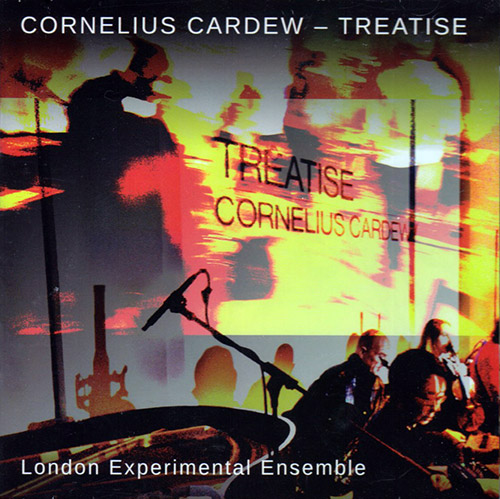

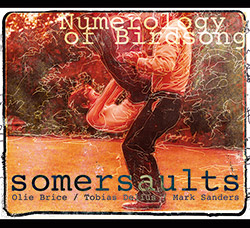
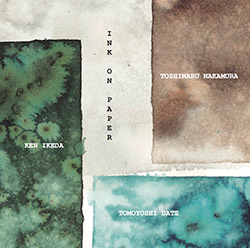
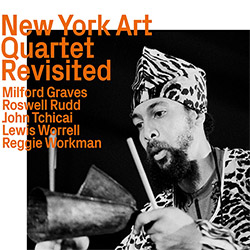
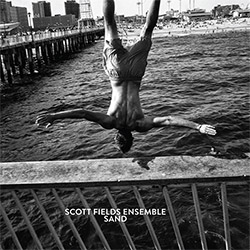
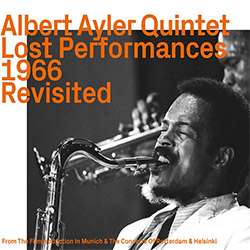


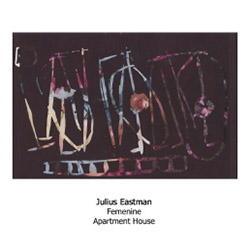
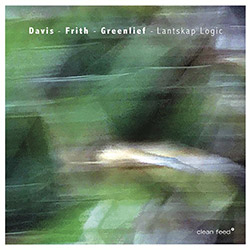
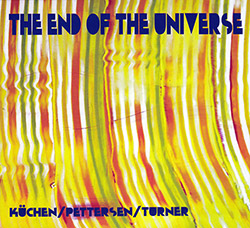
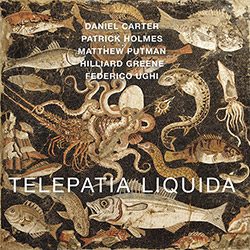


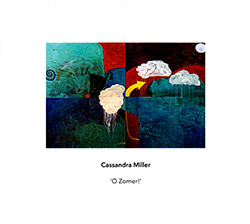
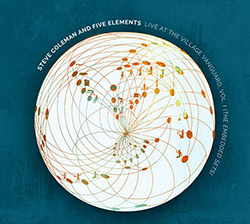



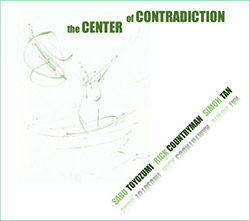
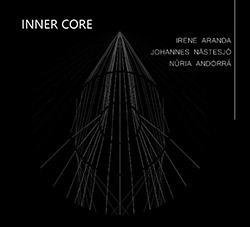

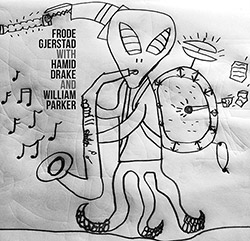


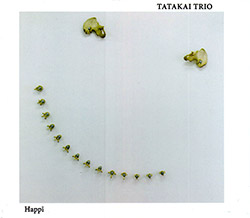


![Guy, Barry / Ken Vandermark: Occasional Poems [2 CDs]](https://www.teuthida.com/productImages/misc4/34849.jpg)
![Novoa / Carter / Mela Trio: Vol.1 [VINYL]](https://www.teuthida.com/productImages/misc4/35236.jpg)


![Elephant9 : Mythical River [VINYL]](https://www.teuthida.com/productImages/misc4/34624.jpg)
![Evans, Peter (Evans / Eldh / Black): Extra [VINYL]](https://www.teuthida.com/productImages/misc4/35279.jpg)

![McPhee, Joe: Straight Up, Without Wings [BOOK]](https://www.teuthida.com/productImages/misc4/35454.jpg)
![Jeck, Philip: rpm [2 CDs]](https://www.teuthida.com/productImages/misc4/35455.jpg)













![Barker / Parker / Irabagon: Bakunawa [VINYL]](https://www.teuthida.com/productImages/misc4/35533.jpg)
![Blaser, Samuel / Marc Ducret / Peter Bruun: Dark Was The Night, Cold Was The Ground [VINYL 10-inch]](https://www.teuthida.com/productImages/misc4/35492.jpg)








![Warren, Kenny (Warren / Hoffman / Ellman): Sweet World [VINYL]](https://www.teuthida.com/productImages/misc4/35451.jpg)




![Blake, Ran / Dave Knife Fabris: Live Amsterdam 2006, First Visit [CD + POSTCARDS]](https://www.teuthida.com/productImages/misc4/35275.jpg)













![DNS: Taking Big Bites Of The Khandas Three Cafes Deep [2 CDs]](https://www.teuthida.com/productImages/misc4/35334.jpg)




![Cleaver, Gerald: The Process [VINYL]](https://www.teuthida.com/productImages/misc4/34966.jpg)




![Alva Noto: HYbr:ID II [VINYL 2 LPs]](https://www.teuthida.com/productImages/misc4/35201.jpg)

![Baron, Derek / Luke Martin: Distinct and Concealed [CASSETTE + DOWNLOAD]](https://www.teuthida.com/productImages/misc4/35079.jpg)

![Lyle, Erica Dawn : Colonial Motels [CASSETTE + DOWNLOAD]](https://www.teuthida.com/productImages/misc4/35080.jpg)









![Sanna, Claudio: Compositori Sardi Contemporanei II [2 CDs]](https://www.teuthida.com/productImages/misc4/35317.jpg)







![Zurria, Manuel: Fame di Vento [3 CDs]](https://www.teuthida.com/productImages/misc4/35167.jpg)

![Granberg, Magnus / Nattens Inbrott / Skogen: Holde Traume, Kehret Wieder! [2 CDs]](https://www.teuthida.com/productImages/misc4/35038.jpg)
![Frey, Jurg: Outermost Melodie [2 CDs]](https://www.teuthida.com/productImages/misc4/35039.jpg)

![Pavone, Jessica: Reverse Bloom [VINYL]](https://www.teuthida.com/productImages/misc4/34895.jpg)




![Modney (Modney / Wooley / Gentile / Roberts / Pluta / Symthe / ...): Ascending Primes [2 CDs]](https://www.teuthida.com/productImages/misc4/34852.jpg)









![Elephant9 with Terje Rypdal: Catching Fire [VINYL 2 LPs]](https://www.teuthida.com/productImages/misc4/35355.jpg)
![Deerlady (Obomsawin, Mali / Magdalena Abrego): Greatest Hits [VINYL]](https://www.teuthida.com/productImages/misc4/34876.jpg)




![Haino, Keiji: Black Blues [2 CDs]](https://www.teuthida.com/productImages/misc4/35109.jpg)



![Surplus 1980: Illusion of Consistency [CD]](https://www.teuthida.com/productImages/misc4/35069.jpg)
![Staiano, Moe: Away Towards the Light [VINYL + DOWNLOAD]](https://www.teuthida.com/productImages/misc4/35037.jpg)



![Caveira (Gomes / Sousa / Abras / Ferrandini): Ficar Vivo [VINYL]](https://www.teuthida.com/productImages/misc4/34643.jpg)
![Gregg, J. J. / David Van Auken: Lunar Prairie [CD w/ DOWNLOAD]](https://www.teuthida.com/productImages/misc4/34611.jpg)

![Coultrain: Mundus [VINYL]](https://www.teuthida.com/productImages/misc4/32439.jpg)
![Mattin: Songbook #6 [VINYL]](https://www.teuthida.com/productImages/misc4/27317.jpg)
![Punkappella: Wake Up [7-inch VINYL]](https://www.teuthida.com/productImages/misc4/17519.jpg)
![Residents, The: WARNING: UNiNC.: Live And Experimental Recordings 1971-1972 [VINYL 2 LPs]](https://www.teuthida.com/productImages/misc4/31521.jpg)
![Coultrain: Phantasmagoria [VINYL]](https://www.teuthida.com/productImages/misc4/30142.jpg)
![Lennon, Sean Ono: Asterisms [VINYL]](https://www.teuthida.com/productImages/misc4/34517.jpg)

![Coley, Byron: Dating Tips for Touring Bands [VINYL]](https://www.teuthida.com/productImages/misc4/17906.jpg)

![Lost Kisses: My Life is Sad & Funny [DVD]](https://www.teuthida.com/productImages/misc4/lostKissesDVD.jpg)